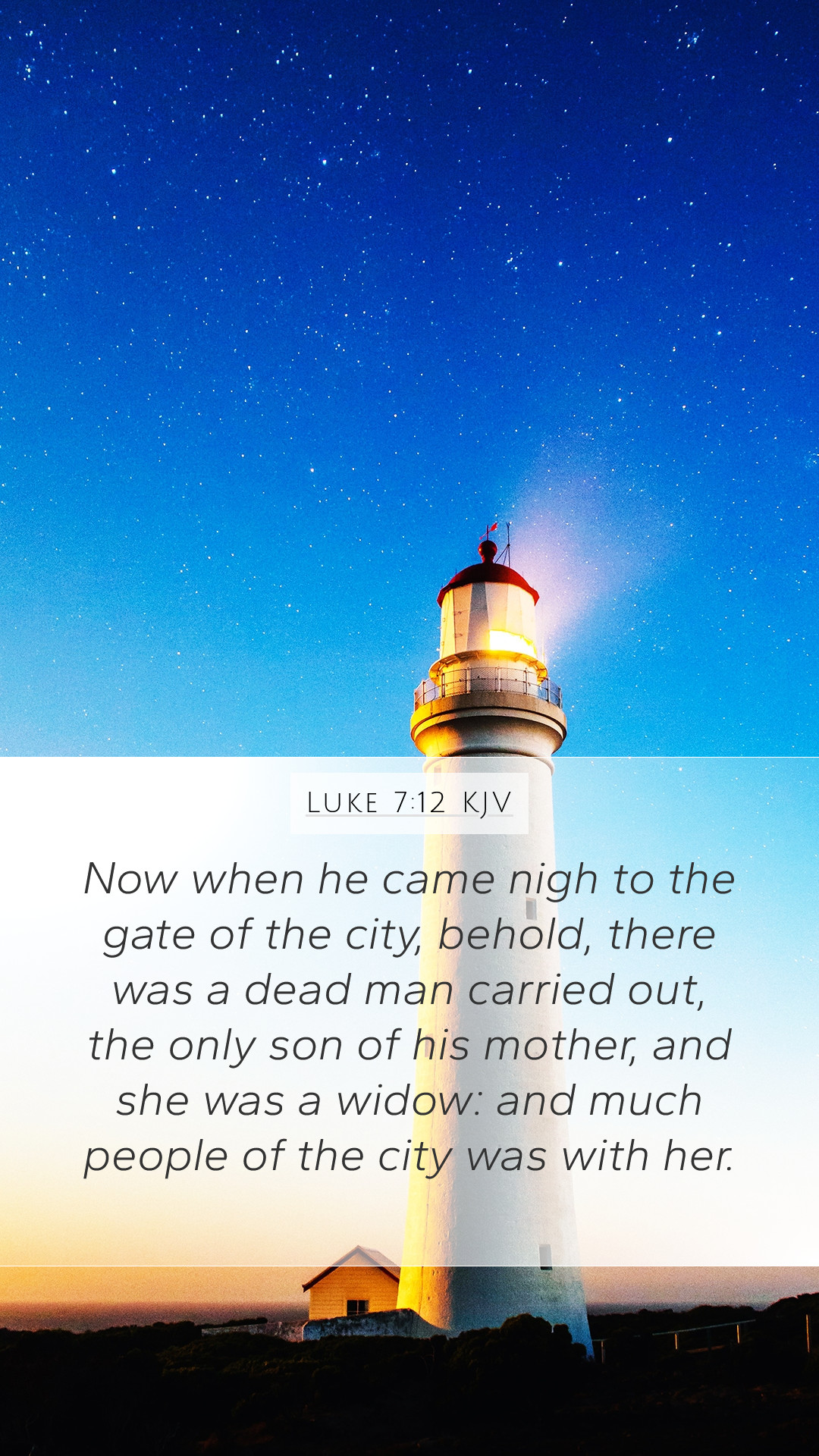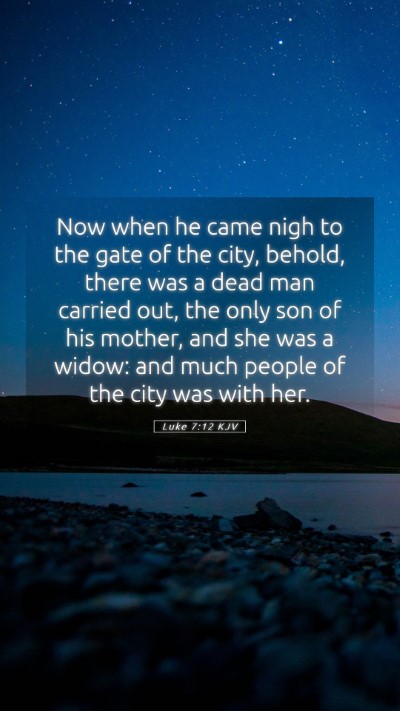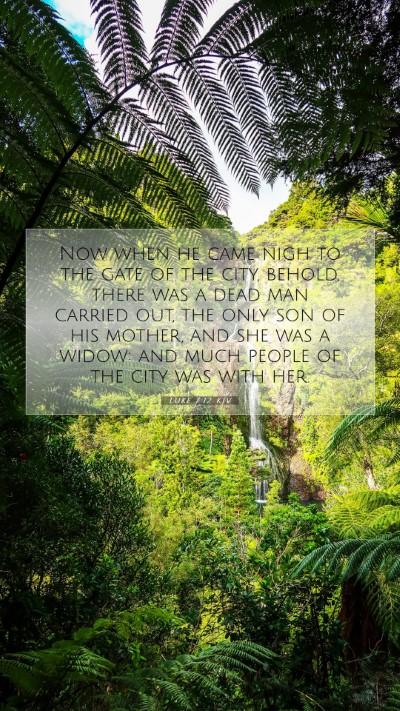Bible Verse Commentary: Luke 7:12
Luke 7:12: "As he drew near to the gate of the town, behold, a man who had died was being carried out, the only son of his mother, and she was a widow; and a large crowd from the town was with her."
Understanding Luke 7:12
This passage narrates a profound moment in the ministry of Jesus as He approaches a funeral procession. Each element in this verse carries significant weight regarding the societal context and the compassion of Jesus.
Key Elements of the Verse
- Setting: The gate of the town symbolizes a boundary between the living and the dead, highlighting the solemnity of the moment.
- The Widow: This woman’s loss is immense; she not only lost her only son but is also left without her husband, making her one of the most vulnerable individuals in society.
- The Large Crowd: The presence of many people underscores the communal aspect of mourning in Jewish culture, emphasizing the importance of social support in times of grief.
Bible Verse Meanings from Public Domain Commentaries
Commentary Insights
According to Matthew Henry, this verse illustrates the depth of sorrow that enveloped the widow. The mention of her being a widow signifies her complete vulnerability, as she has lost the two primary sources of support in her life. Henry emphasizes that Jesus, upon seeing the widow, is moved with compassion, demonstrating the tender kindness of Christ.
Albert Barnes elucidates the importance of the only son in the Jewish context, as he is not just a familial loss but represents the continuation of the family line. The loss of this son would bring not only personal grief but also social implications for the widow in terms of her status and provision in society.
Adam Clarke remarks on the crowds accompanying the widow, noting that it reflects the collective sorrow of the community. He indicates that this leads to a moment of divine intervention as Jesus's compassion compels Him to act, illustrating the importance of community in the grieving process.
Theological Reflections
This passage serves as a reminder of Jesus’ empathy toward human suffering. It reflects His mission to bring hope and healing, especially to the marginalized and those in despair. The widow’s plight represents not just her personal tragedy but symbolizes the larger theological themes of loss, hope, and resurrection that are present throughout the New Testament.
Related Bible Verses
- 1 Kings 17:17-24: The account of Elijah raising the widow's son, illustrating God's power over death.
- John 11:35: "Jesus wept," showcasing His emotional response to death and grief.
- Matthew 5:4: "Blessed are those who mourn, for they shall be comforted," tying into the theme of comfort during grief.
Application to Daily Life
This verse speaks to the importance of compassion in our communities. Just as Jesus responded to the widow’s sorrow, we are called to support those who are grieving in our midst. It challenges us to be active in our empathy and love towards others, reflecting the heart of Jesus in our actions.
Bible Study Insights
This passage can serve as a focal point in Bible study groups, encouraging discussions about the nature of compassion, loss, and restoration in the life of a believer. It presents a beautiful opportunity to explore how Jesus interacted with those in pain and how we can apply His example in our lives.
Conclusion
The story encapsulated in Luke 7:12 is rich with meaning and provides a wellspring of insights for Bible verse understanding. The observations from public domain commentaries allow for a fuller comprehension of the text and highlight the overarching themes in the Scriptures of compassion, community, and divine intervention in the midst of human suffering.


